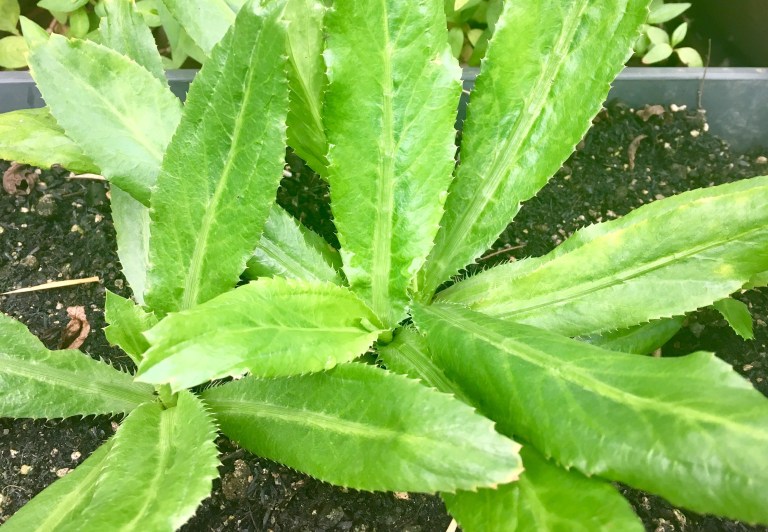
Sawtooth Coriander: A Practical Alternative to Cilantro
Share
If you have not had any luck in growing cilantro successfully here in Metro Manila, I do have a more practical alternative: the sawtooth coriander, also known as culantro. This herb has the same but slightly stronger flavor and aroma than the typical cilantro/ coriander, and it adapts better to our warm and humid tropical zone.
As the name suggests, the edges of its leaves are jagged like a small saw. When the weather is hot, it bolts out and produces spiky flower heads growing from the center of the plant. When the flower heads start to appear, the leaves turn yellow and brown. In order to ensure a regular supply of leaves, cut off the flower stem as soon as it starts to appear.
How to Propagate Culantro
The sawtooth coriander can be propagated from seeds. Its seeds can be harvested from the flower heads once they turn brown. After harvesting the seeds, the flower head can be cut off to allow the plant’s energy to focus more on growing new leaves.
Harvesting and Maintenance
This herb thrives well in hot humid weather. It can be grown in medium sized pots, and requires at least 4 hours of sunlight per day. During summer months, its leaves tend to wilt from the heat, a sign that more frequent watering is needed. To harvest, simply cut mature leaves from the base of the plant. This will encourage the growth of new leaves at the center. The harvested leaves can then be dried and stored in a dry cool place, ready for use as may be needed.
Uses of the Sawtooth Cilantro
The main use of this herb is for seasoning, marinating and garnishing. It is widely used in Mexican cuisine, as well as in some parts of Asia, like Thailand and Vietnam. It is not a common ingredient in the Philippines, though I often recommend it as a close substitute for cilantro. According to Wikipedia, the herb has been used in traditional medicine for the treatment of fevers, minor burns, hypertension, asthma, and diarrhea.

1 comment
Hello,
I have been trying to grow this plant for sometime now. I live in S.C., I am getting an actual plant from FL and both times it has died. I did however on this second plant collect seeds. I was hoping to plant them and was hoping for some helpful advice as I really would like to have this plant around. I do still have some green left on the second plant but the leaves of the actual Culantro has turned black and died. I have removed all dead off of plant and hoping it comes back to life. Any suggestions are welcome. I thank you in advance